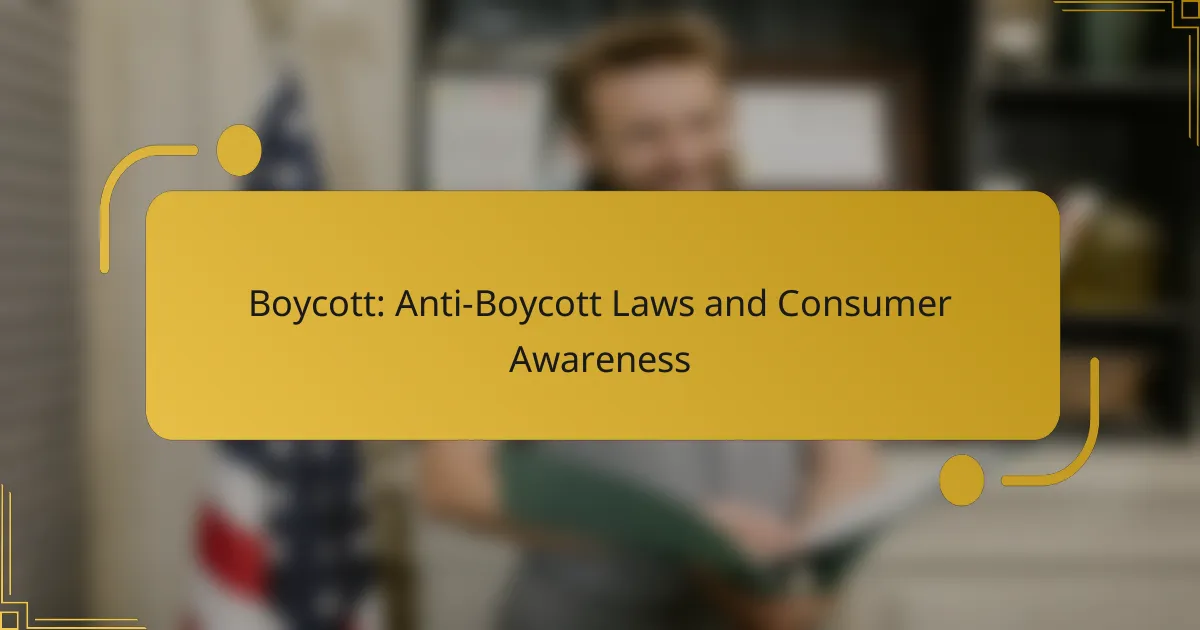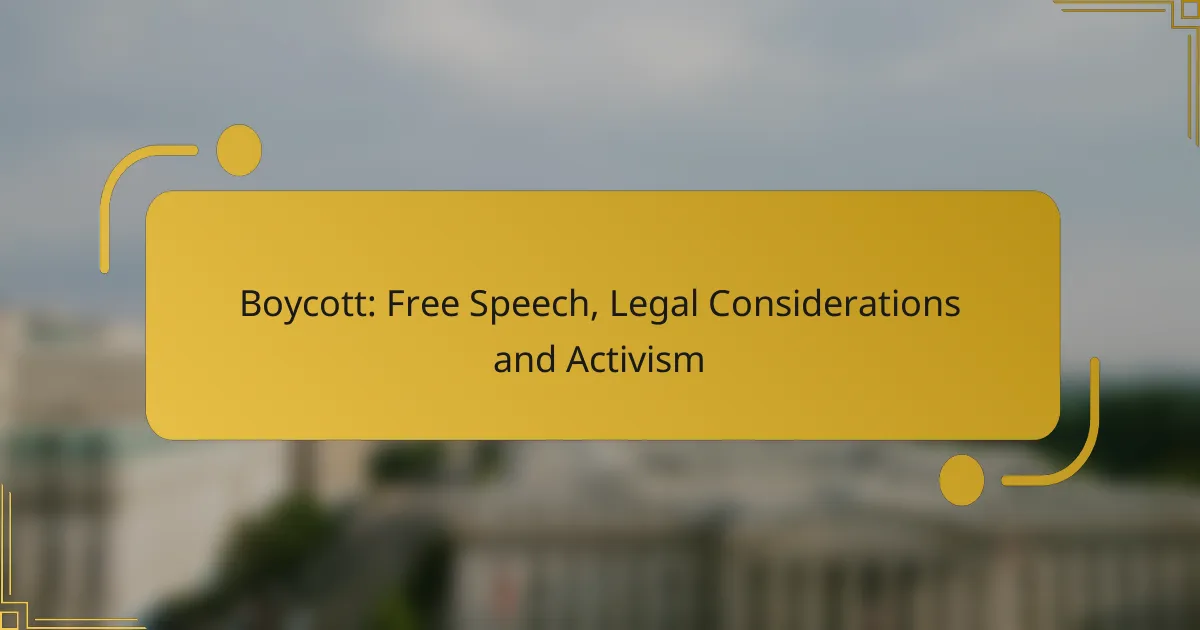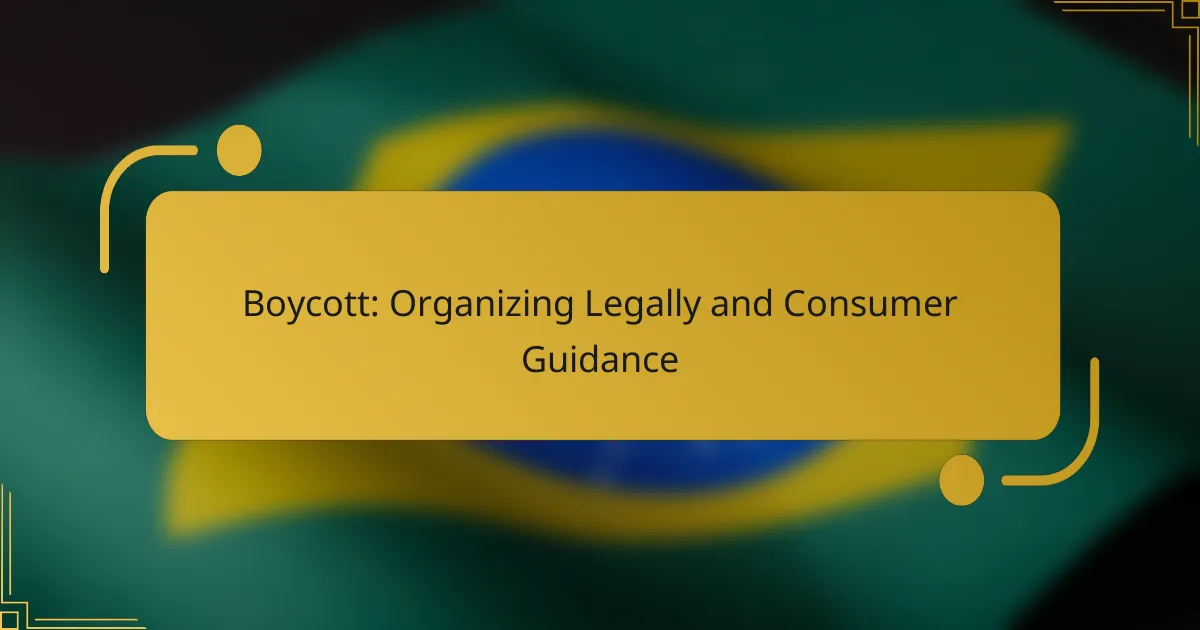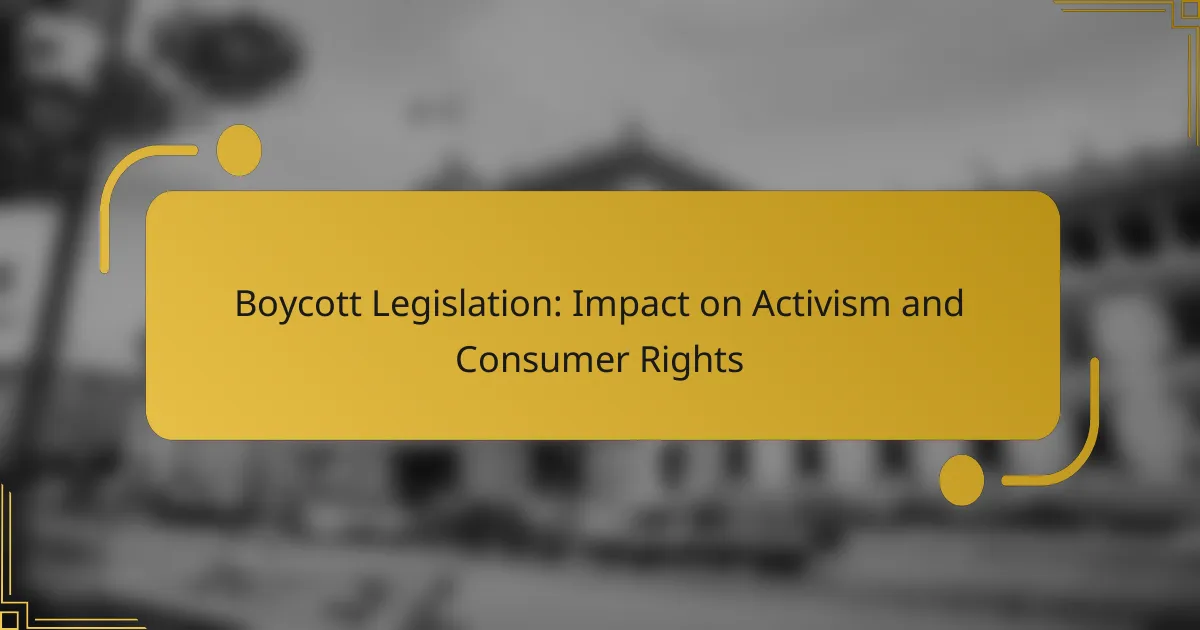Anti-boycott laws in the United States restrict individuals and businesses from engaging in boycotts against certain allied countries, aiming to safeguard American foreign policy and trade relations. These regulations can also impact consumer behavior by influencing perceptions of brand ethics and discouraging participation in boycotts. For businesses, navigating the complexities of these laws is crucial to ensure compliance and avoid legal repercussions.
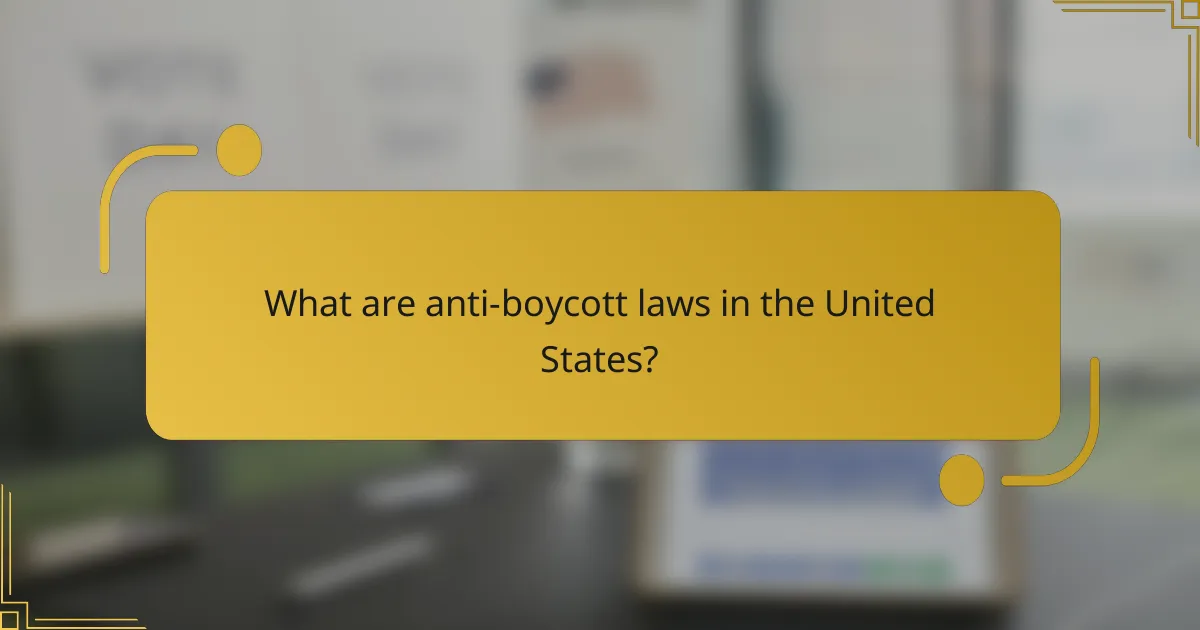
What are anti-boycott laws in the United States?
Anti-boycott laws in the United States are regulations that prohibit individuals and businesses from participating in or supporting boycotts against certain countries or entities, particularly those that are allies of the U.S. These laws aim to protect American foreign policy interests and promote trade relations.
Definition of anti-boycott laws
Anti-boycott laws are legal provisions that prevent U.S. citizens and companies from engaging in boycotts that the government deems harmful to its foreign policy. These laws often target boycotts against nations that have trade agreements with the U.S. or are considered allies.
Typically, these laws require businesses to report any requests for participation in boycotts that are not sanctioned by the U.S. government. Failure to comply can result in penalties, including fines or loss of government contracts.
Key states enforcing anti-boycott laws
Several states have enacted their own anti-boycott laws, with notable examples including Texas, Florida, and New York. These laws often extend beyond federal regulations, imposing additional requirements on businesses operating within their jurisdictions.
For instance, Texas requires companies that enter into contracts with the state to certify that they do not boycott Israel. Similar provisions exist in other states, reflecting a growing trend to combat perceived economic discrimination against certain nations.
Impact on businesses
The implementation of anti-boycott laws can significantly affect how businesses operate, particularly those involved in international trade. Companies must ensure compliance with both state and federal regulations, which may require additional legal oversight and reporting mechanisms.
Moreover, businesses that engage in boycotts may face reputational risks and potential loss of contracts, especially if they are government contractors. It is essential for companies to stay informed about the specific laws in their operating states to avoid legal repercussions.
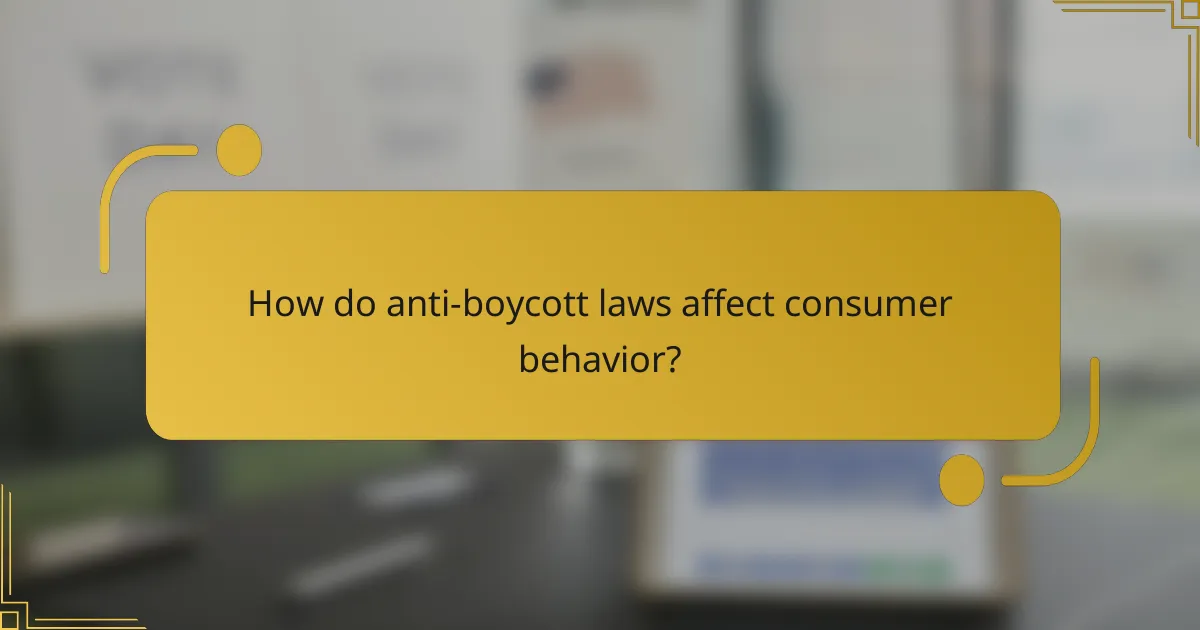
How do anti-boycott laws affect consumer behavior?
Anti-boycott laws can significantly influence consumer behavior by shaping perceptions of brands and their ethical practices. These laws often discourage consumers from participating in boycotts against companies that may be linked to controversial issues, thereby affecting purchasing choices.
Consumer awareness of anti-boycott laws
Consumer awareness of anti-boycott laws is crucial for understanding the legal landscape surrounding corporate practices. Many individuals may not realize that participating in a boycott could have legal repercussions, especially if it targets companies in jurisdictions with strict anti-boycott regulations.
Awareness can be heightened through educational campaigns and media coverage, which inform consumers about their rights and the implications of anti-boycott laws. This knowledge can empower consumers to make informed decisions regarding their purchasing habits.
Influence on purchasing decisions
Anti-boycott laws can directly influence purchasing decisions by creating a sense of caution among consumers. When individuals are aware of potential legal consequences, they may hesitate to support boycotts, even if they disagree with a company’s practices.
For example, consumers might choose to avoid boycotting a brand linked to a controversial issue due to fears of legal action or social backlash. This can lead to a paradox where ethical considerations are overshadowed by concerns about compliance with anti-boycott laws.
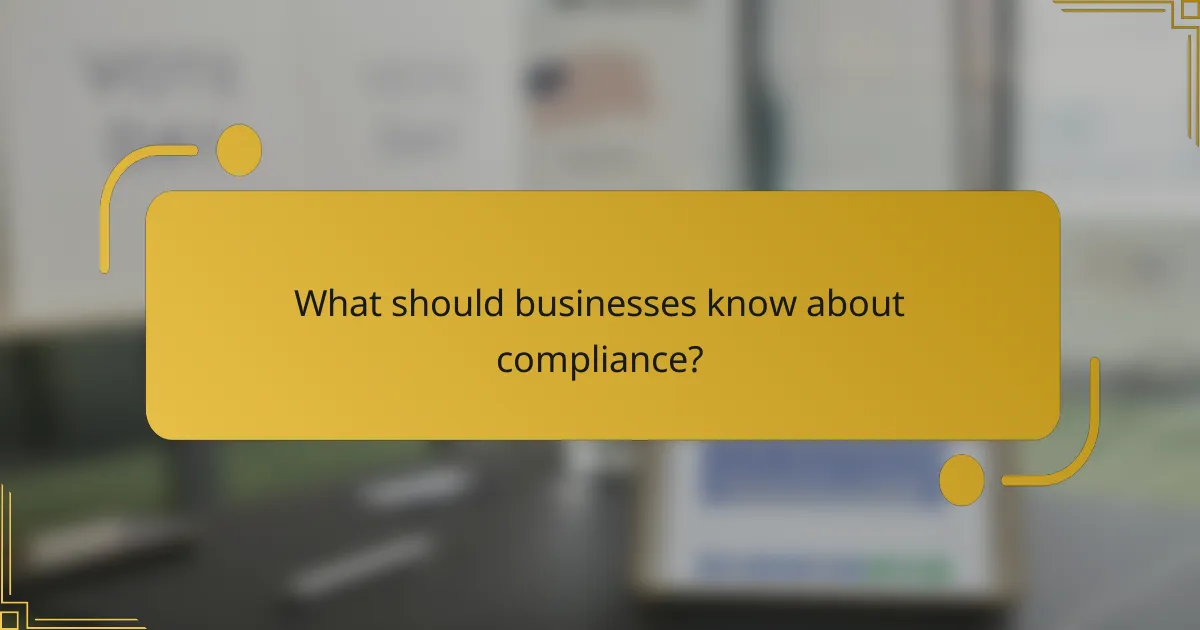
What should businesses know about compliance?
Businesses must understand the compliance landscape surrounding anti-boycott laws to avoid legal pitfalls. These laws can vary significantly by jurisdiction, necessitating a thorough review of local regulations and practices.
Legal requirements for businesses
Businesses are required to comply with various anti-boycott laws that prohibit participation in boycotts against certain countries or entities. For instance, in the United States, the Export Administration Regulations (EAR) and the Office of Foreign Assets Control (OFAC) impose restrictions that businesses must adhere to when conducting international trade.
Companies should implement compliance programs that include training for employees on these laws. Regular audits and updates to company policies can help ensure adherence to legal requirements and mitigate risks associated with non-compliance.
Consequences of non-compliance
Failing to comply with anti-boycott laws can lead to severe penalties, including hefty fines and restrictions on business operations. In some cases, companies may face criminal charges, which can result in imprisonment for responsible individuals.
Additionally, non-compliance can damage a company’s reputation, leading to loss of customers and business opportunities. It is crucial for businesses to stay informed about changes in regulations and to take proactive measures to ensure compliance to avoid these negative outcomes.
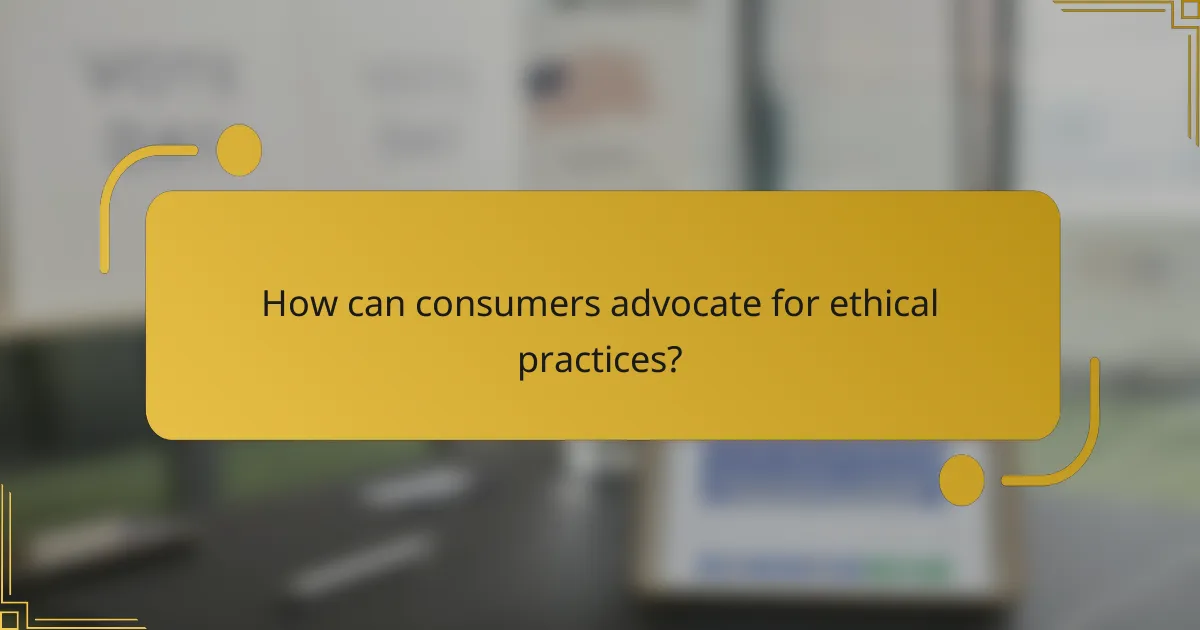
How can consumers advocate for ethical practices?
Consumers can advocate for ethical practices by staying informed about the companies they support and making conscious purchasing decisions. By choosing to buy from brands that align with their values, consumers can influence corporate behavior and promote accountability.
Ways to raise awareness
Raising awareness about ethical practices involves educating oneself and others about the impact of consumer choices. Sharing information through community events, workshops, or online platforms can help spread knowledge about ethical brands and practices.
Consider creating or participating in campaigns that highlight specific issues, such as environmental sustainability or fair labor practices. Collaborating with local organizations can amplify your message and reach a wider audience.
Engaging with brands on social media
Social media is a powerful tool for consumers to engage directly with brands. By tagging companies in posts or comments, consumers can express their expectations for ethical practices and hold brands accountable for their actions.
When engaging with brands, be clear and constructive in your communication. Use specific examples to illustrate your concerns or support, and encourage others to join the conversation. This collective voice can lead to meaningful changes in corporate policies and practices.
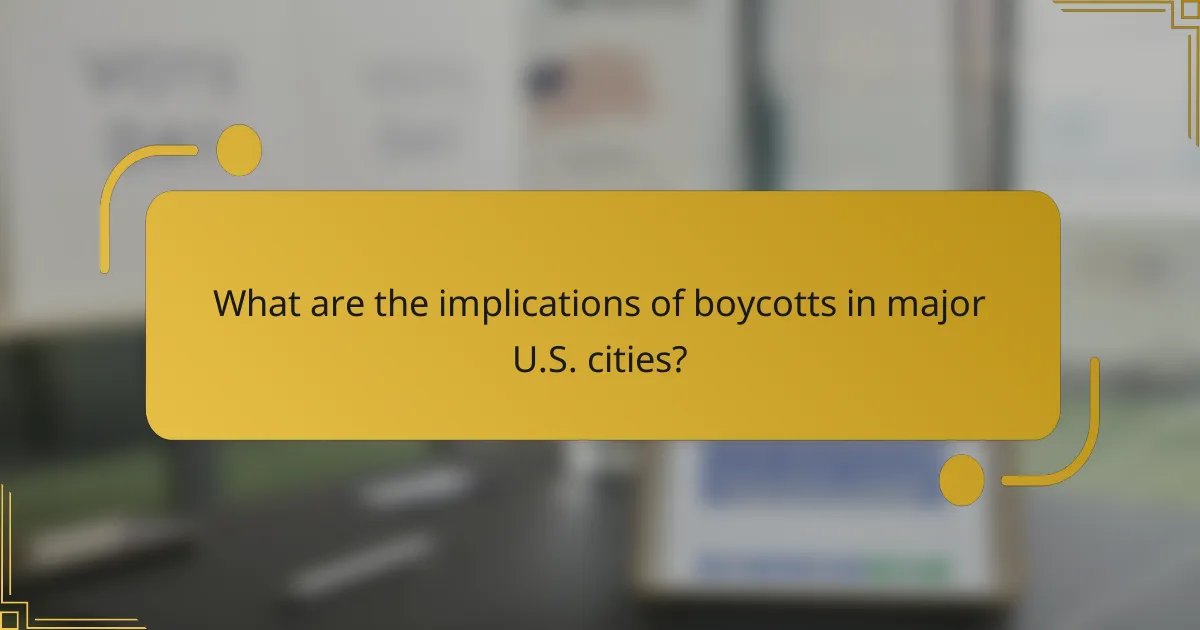
What are the implications of boycotts in major U.S. cities?
Boycotts in major U.S. cities can significantly impact local economies, consumer behavior, and corporate policies. They often serve as a tool for social change, influencing businesses to reconsider their practices or affiliations in response to public sentiment.
Case studies from New York
In New York, various boycotts have emerged in response to political and social issues, such as the Boycott, Divestment, Sanctions (BDS) movement against companies operating in certain regions. These actions can lead to heightened awareness among consumers, prompting them to support local businesses that align with their values.
For instance, a recent boycott of a popular restaurant chain due to its ties with controversial political figures resulted in a noticeable drop in patronage, demonstrating how consumer choices can directly affect business operations. Local activists often leverage social media to amplify their messages, making it easier for consumers to participate in these movements.
Case studies from Los Angeles
Los Angeles has seen boycotts primarily focused on labor rights and environmental concerns. A notable example includes the boycott of a major clothing retailer accused of poor labor practices, which led to a significant backlash from the community and calls for more ethical sourcing.
These boycotts can create a ripple effect, encouraging other businesses to adopt fair labor practices to avoid similar backlash. The city’s diverse population often rallies around these causes, utilizing community events and local media to spread awareness and drive participation.
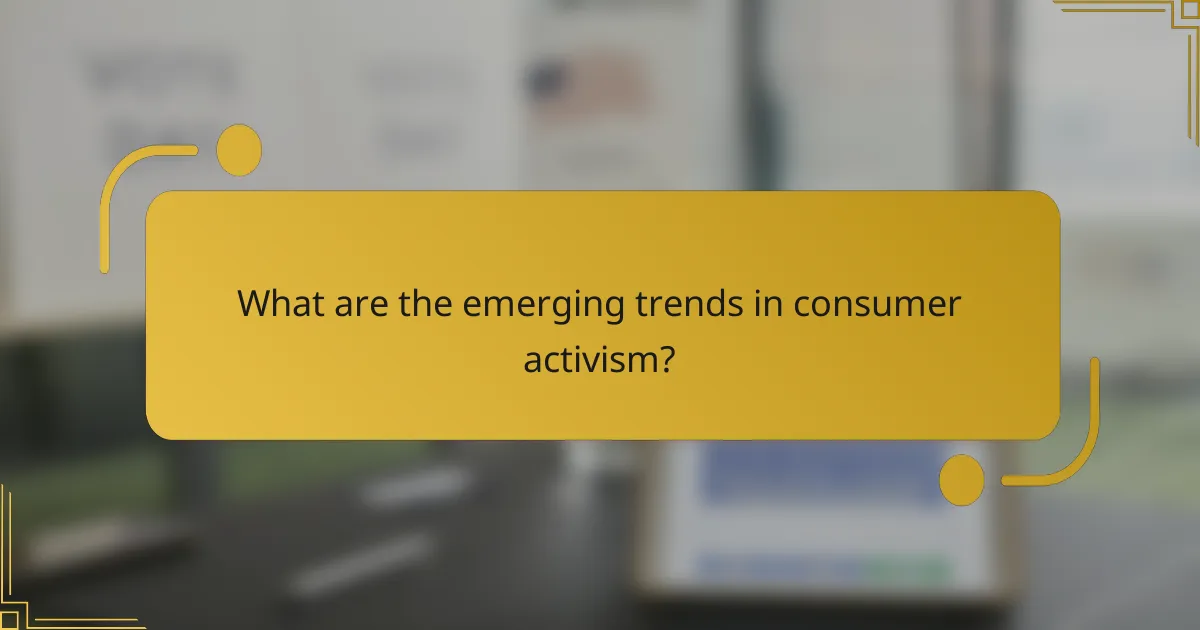
What are the emerging trends in consumer activism?
Emerging trends in consumer activism include the increasing use of digital platforms for organizing boycotts and the evolving landscape of anti-boycott legislation. Consumers are becoming more aware of their purchasing power and are leveraging technology to influence corporate behavior.
Rise of digital activism
The rise of digital activism has transformed how consumers engage in boycotts. Social media platforms enable rapid dissemination of information, allowing individuals to mobilize support quickly and effectively. Campaigns can gain traction in a matter of hours, reaching a global audience.
For example, hashtags related to specific causes can trend on platforms like Twitter and Instagram, amplifying the message and encouraging participation. This digital engagement often leads to increased pressure on companies to respond to consumer demands.
Future of anti-boycott legislation
The future of anti-boycott legislation is likely to evolve as consumer activism grows. Governments may implement stricter laws to counteract boycotts that they perceive as harmful to national interests or economic stability. This could include penalties for companies that participate in or support such movements.
In the United States, for instance, some states have enacted laws targeting boycotts against certain countries or industries. Consumers should stay informed about these regulations, as they can impact the effectiveness of their activism and the choices available to them.
